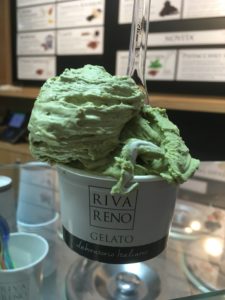Self-Care & Healthy Work Habits for the Pandemic

Short version: I’m posting today to share two files I made for my university. One is a Healthy Work Habits and Self-Care Guide for the Pandemic Crisis, which many people have said they found helpful and refreshingly different from others that are going around (details below). Some bits are academia specific but most of it is applicable broadly, and I’ve left in the links to university services because it’s likely you can find such services . The other is teaching-specific, a guide to Adapting a Syllabus for the Crisis, not focused on remote teaching, but on the fact that everyone on Earth is already on the verge of breaking down, so it’s vital to do all we can to structure courses and assignments to have a little more leeway, and paths to recover when students (and instructors) do break down.
I want these to help as many people as possible, so please download them, share them, excerpt them, adapt them, make a version for your school or business, use them any way you wish; while credit would be nice my only firm request is that, as you pass them on, you also pass on the wish to pass them on. (If you want .docx files they’re here for self-care and here for syllabus design.)
Long version:
Early this spring, as the COVID-19 crisis set in, someone on #DisabilityTwitter asked (I wish I could find the tweet) if others too had found that the self-care skills needed for chronic pain are the same as the ones needed to cope with the pandemic.
I was among many who answered “Yes!”, and soon a small thread was describing our experiences, that it felt almost like a superpower, already understanding the slow, invisible toll of constant daily trauma, the exhaustion that sets in, how to self-monitor, how to spot when you can’t do it and should switch to a different task (rest is a task), and how to fight back against that self-accusing voice inside that insists you should keep pushing through, and is plain wrong. Worldwide health organizations have recognized this as a World Mental Health Epidemic, as well as a viral epidemic. Chronic exposure to fear and anxiety (which are forms of pain), have a real, measurable traumatic effect on the brain, dealing neurological damage which is worse because it repeats every day, and which is affecting every human on Earth right now. Symptoms include fatigue, difficulty concentrating, difficulty sleeping, short temper, diminished higher cognitive functions like writing, reading, creativity, second languages and other skills seeming to vanish away. Does that sound familiar? It’s very familiar to me, the feeling of waking up one morning to find I just can’t do it, words aren’t flowing, my eyes keep straying from the screen, the Latin or Italian which made sense yesterday is just a wall. This is not to say that the crisis hasn’t been bad for me and others with chronic pain, it’s like having the condition twice at once; not like, it is having two chronic-traumatic conditions at once, the usual plus 2020 (and with quarantine many aspects of treatment and care are harder, higher risk, or just not possible). But having the skill set there was still invaluable.
So I joined my university’s committee to adapt teaching for COVID in the fall, and made these guides.
A lot of it is stuff that’s always helpful, but polished specifically for the current crisis. Here’s a little bit of the logic behind the things I tried to focus on, while the downloadable files themselves are more the focused methods than the abstract principles:
First, I tried to make it non-proscriptive. A lot of Pandemic productivity advice says “60% of people are more productive when they [wear a suit or whatever] so you must do it!” So the other 40% of people should, what, get bent? So I tried to focus on learning about yourself: try this work tip, then try the opposite, try different things to learn what helps you personally produce at your best.

Second, I talk about self-care as a work task and a duty. Culture pressures us to skip it, that when corners need to be cut we cut rest, play, and sleep. We shouldn’t. When we cut those, we start producing less (in quality and quantity) in those hours when we do work. It hurts our productivity as much if not more than cutting work tasks, and also makes us miserable. I remember a dreadful article a couple years ago with the thesis If you want to be successful you have to work 60 hours a week like these rich CEOs, but when you looked at the breakdown of what they called “work” they counted in those 60 hours all their commuting time, the gym & shower, power naps, tennis with a colleague, lunch meetings. So, to be clear, if you worked 9-5 with a 30 min commute on each end they were counting that as 10 hours’ work for the CEO but only 8 for employees, and if there was a trip to the gym and dinner or drinks with colleagues after work the CEO got to count those too, increasing 10 to 12, but the employee didn’t. If you counted only the activities that regular employees get to count as “work” the CEOs were working barely 35 max but the article was calling it 60 to advance this horrible false argument that only work-a-holics get ahead (a claim so many corporations want us to believe). You know what that article showed helps people get ahead? Having time in the day for rest, and exercise, and breaks, and games, and leisurely lunches, and spending time outside, and counting that self-care as vital to your work. Most jobs won’t count that as work (and the offices that do have nap rooms & massage chairs & lego rooms often do that to entice employees to also ridiculously late and never leave), but we can at least count self-care as work in our minds, and tell our guilt reflexes that this is not where corners should be cut.
 (And if you’re a Terra Ignota fan, remember how the Utopian Oath requires you to promise to take that minimum of rest and play that’s necessary for your productivity? And remember that in their society twenty hours a week is the default work week? Utopia’s standards of rest and play are very high, and skipping the self-care that keeps you at your best is oathbreaking just as much as skimping on work. Also, Unusual Frequency has awesome new Utopian travel mugs if you want to reconfirm defeating death and attaining the stars! And Cousin flags if you want to affirm doing so kindly while taking care of yourself and others.)
(And if you’re a Terra Ignota fan, remember how the Utopian Oath requires you to promise to take that minimum of rest and play that’s necessary for your productivity? And remember that in their society twenty hours a week is the default work week? Utopia’s standards of rest and play are very high, and skipping the self-care that keeps you at your best is oathbreaking just as much as skimping on work. Also, Unusual Frequency has awesome new Utopian travel mugs if you want to reconfirm defeating death and attaining the stars! And Cousin flags if you want to affirm doing so kindly while taking care of yourself and others.)
Third, I talk about the brain like an organ. A body part. Which it is, one we push to its max a lot in daily life. So we should monitor it like one. Tennis elbow affects 40% of serious players, so it’s common sense for any tennis player to learn about tennis elbow and how to watch for it to set in. The latest studies I’ve seen show at least mild depression affecting 33% of undergrads, 41% of Ph.D. students, and in this pandemic it’s affecting a huge swath of the entire human race, so we should all learn about it, and watch for it, and train ourselves on how to mitigate it as much as possible while the symptoms are still mild, just like tennis players learn about tennis elbow. The only reason we don’t is that our culture stigmatizes problems with the brain totally differently from other organs, treats them as a failure of character or failure of will; they aren’t. “Push through the pain” is the wrong advice for that tendon in a tennis player’s elbow, and it’s the wrong advice for brain things too.
Fourth, I tried to stress in both documents that, in this situation, breaking down is normal. Lower productivity is normal. Grief, exhaustion, short tempers, snapping at friends, regretting it, they’re all normal. We have to plan for that, expect it, brace for it, recognize that in a team or in a household these months are going to be everybody taking turns having small breakdowns – if we prepare for that we can help each other prevent the *bigger* breakdowns that are the real problem. Voices inside will tell us that the days we wake up in the morning and sit down to work and just… can’t… deal, are bad, our fault, our weakness, failure, but all the neuroscience we have says it’s not our fault, it’s natural, it’s what brains do pushed past their limit, and our brains are past their limit. So on the mornings when you sit down to work and just can’t deal, and the self-doubt voice inside looms up to say weak! failure! push back. That voice is common too. I hear it. I still hear it after years of chronic pain and every saying that the pain is real, that I should take it easy, and all my friends being supportive, and my family, but something in our culture still makes us blame ourselves inside, weak! failure! So if you hear that voice on mornings when you just can’t deal, try to summon up another voice to shout back at it: everyone on Earth is breaking down. Today my job is not this task–today my job is to take care of myself, and protect the work I’ll be able to get done tomorrow.

A closing thought: Early in the pandemic the anecdote went viral that Isaac Newton came up with his theory of gravity while he was quarantining in the country from a plague, and many people (not jokingly enough) used it to say we should have high standards for what we produce in a pandemic, or that if we don’t set high standards it means we’re not geniuses like him. The true fact (historian here, this is my period!) is that Newton did theorize gravity while quarantining, but didn’t have library access, and while he was testing the theory he didn’t have some of the constants he needed (sizes, masses), so he tried to work from memory, got one wrong, did all the math, and concluded that he was wrong and the gravity + ellipses thing didn’t work. He stuck it in a drawer. It was only years later when a friend asked him about Kepler’s ellipses that he pulled the old notes back out of the drawer to show the friend, and the friend spotted the error, they redid the math, and then developed the theory of gravity. Together, with full library access, when things were normal after the pandemic. During the pandemic nobody could work properly, including him. So if anyone pushes the claim that we should all be writing brilliant books during this internationally recognized global health epidemic, just tell them Newton too might have developed gravity years earlier if not for his pandemic. And for a better historical model to use for how productive we should be in 2020, remember 1522-3, when Michelangelo was being hounded by lawsuits, and there was a political takeover crisis in his homeland, and he was so stressed he wrote later that he couldn’t touch a chisel the whole time, he couldn’t concentrate on any kind of art, too stressed and scared. Even Michelangelo, whom everyone agrees to call “genius.” Breaking down is normal for everyone, there are no special geniuses immune somehow to the slings and arrows of outrageous 2020. So next time you find a project taking longer than your planned, and your attention straying, and your ability to cope fading away, remember that if you’re getting anything accomplished in these months you’re already doing better than Michelangelo. And then do some self-care.
The links again:
13 Responses to “Self-Care & Healthy Work Habits for the Pandemic”
-
Hi, Ada, loved your article: Self-Care & Healthy Work Habits for the Pandemic. The gelato pictures are great and add so much, subliminally, to the written content of the article, especially in juxtaposition to the Michaelangelo. Your analysis of the work weeks of the rich and famous is spot on. I’m going to pass it you.
-
[…] Self-Care & Healthy Work Habits for the Pandemic […]
-
Thank you for the guides. I shared them with my Learning Innovation team at Duke, and they loved them!
-
Wonderful! Thank you for passing them on!
-
-
““Push through the pain” is the wrong advice for that tendon in a tennis player’s elbow, and it’s the wrong advice for brain things too.”
This assertion about the mind is not self-evidently true; indeed, my personal experience seems to contradict it. (I have trouble with procrastination now, but that only started after I started taking this approach, since without a clear and habitual guideline like ‘complete everything before the deadline’ I tended to make overly permissive decisions about how much delaying was acceptable.) Of course if someone is too tired to continue working effectively on one task they should change to another, but stopping work for more enjoyable self-care activities (e.g. conversation, reading for enjoyment, and several of the other things you list), outside of times that are very well-defined in your habits, seems likely to encourage procrastination, since it usually takes more effort to begin a task than to continue one you’re already doing.
Given your experience teaching, and given that most of the rest of your advice seems clearly correct to me, you are probably at least generally right about this idea, too, but you should explain and justify it more than you have if you want people to both believe it and not just use it as an excuse to procrastinate. -
“Healthy Work Habits and Self-Care Guide for the Pandemic Crisis” is spectacular. I hope that doesn’t sound hyperbolic, but you’ve collected and organized so many excellent ideas, explained them succinctly and clearly, and supplied simple practical examples of their application. Absolutely brilliant.
Thank you so much for this! I’m not in an academic setting but am passing this along to my work’s Health and Wellness Committee so that everyone can benefit from what you’ve written.
-
Why do you think an age of “comfort” is superior to an age of comfort? As I see it, darkness is always infinite. All lives end in death, all lives begin with babies shrieking and crying for the lost womb, all lives will be full of hardship, lives, abuse, and even other people’s crimes. If darkness is infinite nothing in the world will banish it. All we can hope for is to add light. And that’s what I think the admiration of the Renaissance is about. Anyways, aren’t your books supposed to be tearing the “rational utilitarian utopia” apart with a bunch of gods and monsters, magic and miracles so everyone can go to the stars? I’m honestly not sure you have the audience you want… The merchandise store for your books on Etsy is almost all people buying Utopian, Blacklaw, and Humanist stuff in that order because people are interested in scientific ideals, extreme self-reliance, and self-improvement just like the Renaissance.
-
[…] Ada Palmer of the University of Chicago, who has developed resources on self-care and pedagogy during the pandemic, reminds us, “Teachers are also role-models. It can make a great difference to […]
-
[…] with flexible teaching models, challenges — particularly in terms of student, faculty and staff well-being — remain. However, there are strategies you can employ to preemptively ameliorate student […]
-
[…] Isaac Newton, who people have held up as an example of what you can get done during a […]
-
[…] He cites Ada Palmer’s work, who points out history is full of people who have had to put their work on hold for one reason or another. […]
-
[…] and older studies of the neurological effects of trauma and emergencies, the subtle, cumulative damage to brain and body that comes from waking day after day for months on end to find the world still […]
-
[…] teaching models over the last 18 months — particularly in terms of student, faculty and staff well-being — challenges remain. However, there are strategies you can employ to preemptively reduce […]


